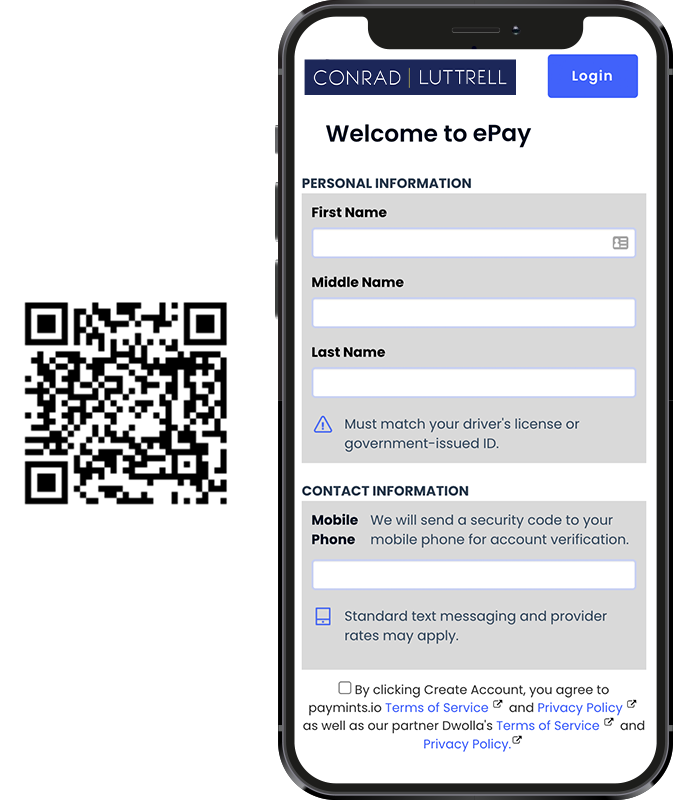Submit Your Earnest Money Deposit
Paper checks and wire transfers can finally be a thing of the past with ePay! Now, delivering funds for your next real estate transaction is easier, safer, and quicker than ever.
See what our ePay offers:
- Fully Electronic, Encrypted & Secure
- Initiate a Transfer within 90 Seconds
- Connect to Any Financial Institution in the U.S.
- Never Share Routing and Account Numbers
- Stay Informed with Email Notifications
- Receive Refunds or Commissions
- Accessible 24/7
ClICK FOR EARNEST MONEY DEPOSIT
IMPORTANT NOTICE REGARDING EPAY: If your closing is scheduled within the next 24 – 48 hours, please do NOT use ePay. Please reach out to your Closer to confirm the best method for you.
Wires
- Request / Pay From Anywhere
- Protects Sensitive Information
- Automated Receipts
- Full ID Verification
- Funds Verified
- Earnest Money Deposits
- Cash to Close for Refinances
- NO Waiting period for Cleared Funds
Epay
- Request / Pay From Anywhere
- Protects Sensitive Information
- Automated Receipts
- Full ID Verification
- Funds Verified
- Earnest Money Deposits
- Cash to Close for Refinances
- NO Waiting period for Cleared Funds
Checks
- Request / Pay From Anywhere
- Protects Sensitive Information
- Automated Receipts
- Full ID Verification
- Funds Verified
- Earnest Money Deposits
- Cash to Close for Refinances
- NO Waiting period for Cleared Funds
Wire Instructions
Our title wire instructions are sent ONLY via secured email requiring a login and password or passcode. Upon receipt of any wire instructions, please contact our office at (304) 267-3050 to verbally confirm the instructions before initiating your wire.
This is to prevent E-mail and Internet-related fraud schemes that have become increasingly prevalent and more sophisticated in recent years, affecting customers of financial institutions across the United States. These scams are often perpetrated by criminals who compromise the e-mail accounts of unsuspecting individuals and businesses, and then use those e-mail accounts to initiate unauthorized funds transfer requests.
Paper Checks
Paper checks can be mailed or dropped off in person at our corporate operations office at 127 Crimson Circle Martinsburg, West Virginia 25403. Please allow for delivery time.
How To Protect Yourself
- Be careful with what information you share online. Openly sharing personal things like birthdays, pet names, schools you attended and references to family members can give scammers the information they need to guess your password or answer your security questions.
- Don’t click on anything in an unsolicited email or text message asking you to update or verify account information. Look up the company’s phone number on your own (don’t use the one a potential scammer is providing), and call the company to ask if the request is legitimate.
- Scammers use slight differences to trick your eye and gain your trust. Examine the email address, URL, and spelling used in any correspondence.
- Never open an email attachment or download a file from someone you don’t know. Be wary of email attachments sent to you.
- Set up two-factor (or multi-factor) authentication on any account that allows it.
- Verify payment and purchase requests in person if possible or by calling the person to make sure it is legitimate. You should verify any change in an account number or payment procedures with the person making the request.
- Be especially wary if the requestor is pressuring you to act quickly.
Additional information and resources on business email compromise can be found at: www.fbi.gov/bec


